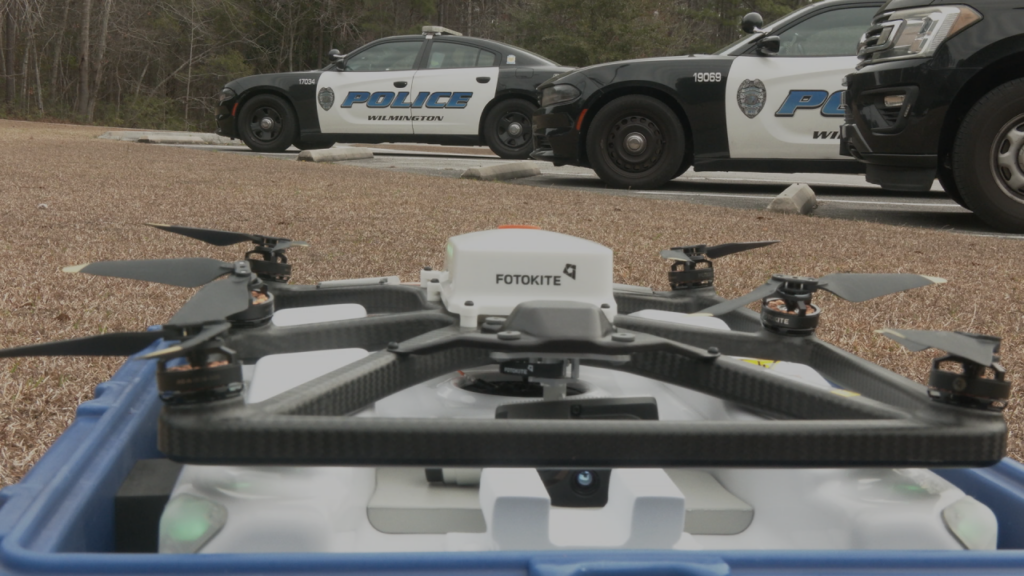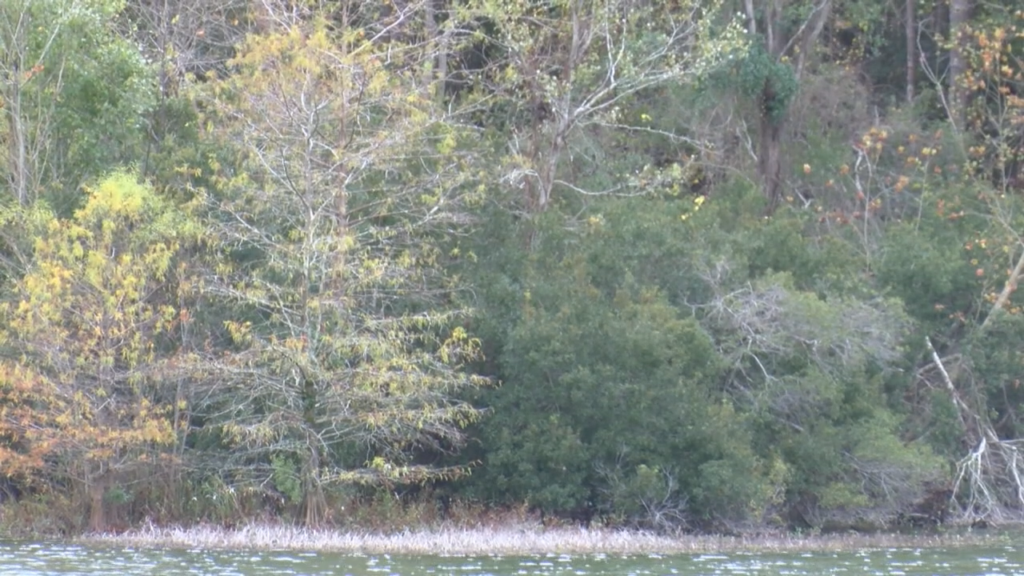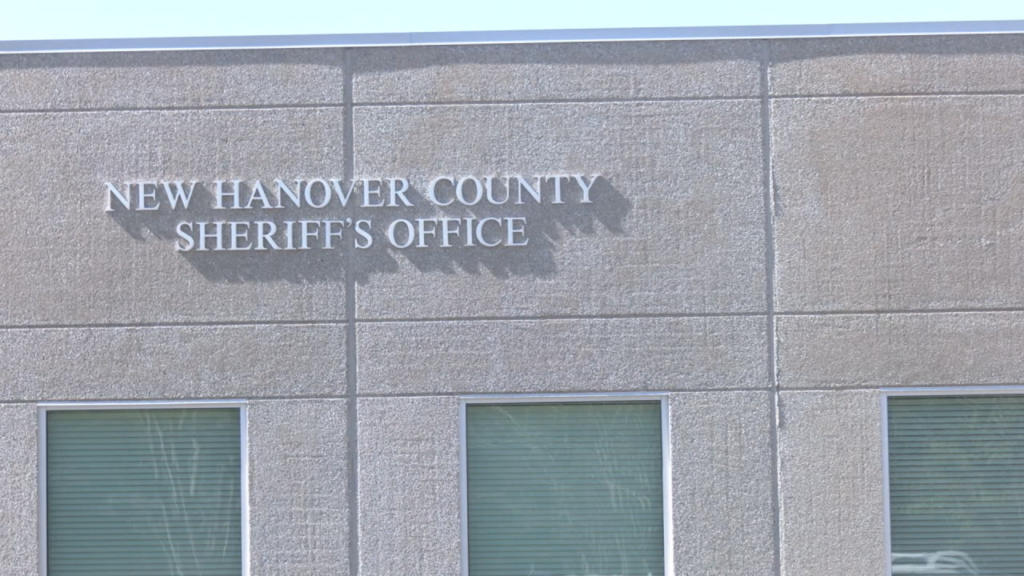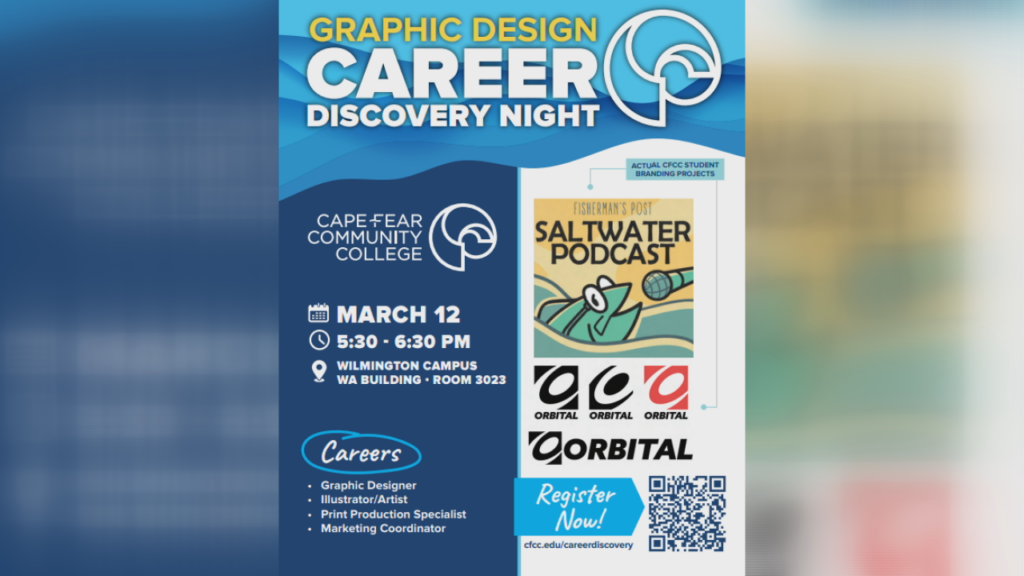Hoggard coach using tragedy for triumph: The Michael Bowen Story
Michael Bowen was diagnosed as a 'walking quadriplegic' after car accident, but that won't stop him
WILMINGTON, N.C. (WWAY) – In the first line to open his book, Michael Bowen writes, “For 35 years, I told myself that no one would want to read a book about what happened to me…”
That book, ‘The Viewfinder‘, has a near-perfect 4.8 star rating on Amazon.
The Hoggard tennis coach just secured his 300th career victory on August 17th. He’s been with the Vikings since 2006, with stints as both the head boys and girls coach.
But coaching is just another chapter in his story.
Congratulations to Michael Bowen, our Women’s Tennis Coach, on his 300th career victory last week! pic.twitter.com/rFzEkNxQyw
— Hoggard Sports (@HoggardSports) August 24, 2023
Michael Bowen’s love for tennis spurted during his youth, starting at the age of seven. He would go on to play at Mount Olive and receive a scholarship to play for the Seahawks at UNC Wilmington. He played other sports, but says he knew he was best at tennis.
“For me,” said Bowen. “It was a passion. My favorite part is the relationships. Most coaches that have a passion for coaching – it’s not just the sport they are coaching it’s the relationships. It’s what keeps me coming out here every day at Hoggard.”
“I thought my goal was just going to be teaching tennis, but really it is passing on life lessons that I’ve learned as a player, person…”
Coach Bowen has had a lot of success with the Vikings, including the 2020 4A state championship. He has reached many milestones.
But instead of milestones, he’d rather focus on ‘the process.’ He says he began to grow an appreciation for that after one day his senior year in college. Bowen was making his acting debut as an extra on a movie set with Arnold Schwartzenegger called Raw Deal. After leaving one day of filming that he recalls was more or less of a wasted film day: the director couldn’t synchronize the background dancers with music and lines – they were to return the next day and Bowen decided ‘this isn’t for me.’
Michael entered his Baja Bug for the final time. Moments later, his life changed in an instant.
A near-death car accident had left him paralyzed. It broke his neck, but not his will. But, it got close.
“There were times in the beginning… when I laid paralyzed in a hospital, and you ask ‘why?’ and you get no answer… Whether you have faith or don’t faith, and I do have faith, it was asking ‘ why?’ and hearing no answer. I got my answer when I realized through what I saw as a tragic answer could bring me closer to my parents. At the time of the accident, our relationship wasn’t where it needed to be.”
After attacking rehab, he says he began to dream of biking across America, speaking to patients who were less fortunate in their recovery.
“And that’s what I did.”
A ‘walking’ quadriplegic still suffers from residual paralysis. Bowen has it on his right side, with spazzing of his right limbs. A custom Trek bike was modified just for Bowen to be able to allow him to bike thousands of miles consecutively, even with his condition. In total, he took two trips across the country in three sessions across five years: North Carolina to California, North Carolina to Florida, and North Carolina to Maine. He took the trips during the summer, as he was teaching during the school year.
“Those bicycles trips… I didn’t do it alone. I had a team go with me. Without them, there is no success,” said Bowen. “Being able to deliver a message to patients – it was because of a lot of help from a lot of different people.”
As uplifting as the trips were, they were taxing. For someone who had never biked distances before, the challenges were apparent.
“There were times when I thought I was going to get really hurt,” admitted Bowen. “But you know – fate kind of has had its way with me and just escaping those dangerous moments on the bike … biking is a cumulous effect and it’s when you get tired is when you make silly mistakes, but the moments I remember most is speaking to patients.”
One of the patients Bowen tried to uplift was a member of the notorious Californian gang, the CRIPs.
“One of their leaders had been stabbed in the neck,” said Bowen. “I realized there was nothing I could do to encourage him or give him hope because I had no idea what his life journey was like. Some of my memories – I felt like I wasn’t very beneficial.”
But clearly there were many stops that he was beneficial. “There were times I felt I made a difference, and the people who went with me.”
Surprisingly, Bowen no longer rides his bicycle. His last ride was to the National Spinal Injury Association.
“I told the president ‘All done, I’ve done all I can do.’ I don’t bike anymore; I don’t miss it.” He doesn’t have the exact bike – the frame, tire, and gears were completely worn out. But he has a replica, and all of the jerseys he wore while riding.
“They are framed just for me. I can look back on fond memories of trying to do something for other people.”
“The thing is… I thought I was making these trips to help other people, but the biggest beneficiary was me.”




